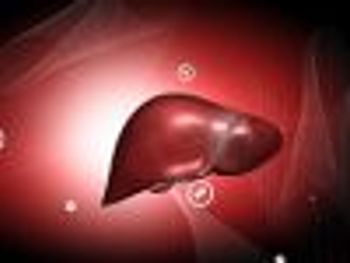
Low-dose aspirin users may have a lower risk of developing ovarian cancer and hepatocellular carcinoma (HCC), according to 2 new studies published in JAMA Oncology.

Low-dose aspirin users may have a lower risk of developing ovarian cancer and hepatocellular carcinoma (HCC), according to 2 new studies published in JAMA Oncology.

Aspirin dose and duration of use may affect the risk of developing ovarian cancer and hepatocellular cancer.

Neoadjuvant therapy with a combination checkpoint blockade produced a high response rate among patients with melanoma.

Puerto Rico’s Hispanic population faces substantially different cancer risks compared with Hispanics in the continental United States.

Study highlights mechanism of endocrine resistance in estrogen receptor-positive breast cancers and potential therapeutic targets.

Cheryl Allen, BSPharm, MBA, Vice President of Industry Relations at Diplomat Pharmacy, discusses the emergence of CAR T-cell therapy as a groundbreaking oncology treatment.

Artificial intelligence tool can analyze images of patients’ lung tumors, specify cancer types, and identify altered genes driving abnormal cell growth.

Entrectinib showed a durable response and reduced tumors in patients with ROS1-positive non-small cell lung cancer.

A new report published in JAMA Oncology highlights the cost burden of utilizing prostate cancer screening and treatment in this age group.

The US Preventive Services Task Force recommends against routine screening for prostate cancer in men 70 years of age and older.

The CLL/SLL indication is a standard approval and the follicular lymphoma indication is an accelerated approval contingent on the results of a confirmatory trial

Officials with the FDA have approved duvelisib (Copiktra) for the treatment of patients with relapsed/refractory chronic lymphocytic leukemia/small lymphocytic lymphoma (CLL/SLL) or relapsed/refractory follicular lymphoma.

Sequential administration of HER2+ therapy and chemotherapy did not affect survival outcomes in patients with breast cancer.

Study identifies receptor as potential target for reversing liver damage and preventing progression to cancer.

Growth in midlife mortality includes conditions such as heart disease, liver cancer, pulmonary disease, obesity, and neurologic disorders.

Top news of the week from Specialty Pharmacy Times.

Top news of the day from across the health care landscape.

Older women undergoing chemotherapy for breast cancer have a higher risk of experiencing a decline in their ability to function physically.

The effect of chemotherapy on functional status can be critical for older adults, as declining function can inhibit the ability to live independently and perform daily activities.

Some older women undergoing chemotherapy for breast cancer may be more susceptible to declining physical function and inability to recover function.

The cumulative economic toll that breast cancer treatment has on survivors and their families carries long-term financial implications, according to a recent study in the Journal of Supportive Care and Cancer.

The number of individuals diagnosed with cancer steadily increases each year.

Survivors of breast cancer and their families face long-term cumulative financial implications from treatment and associated costs.

Researchers investigated whether heavy alcohol consumption in early life was associated with high-grade prostate cancer in adulthood.

Women who carry the BRCA1 and BRCA2 gene mutations are at an increased risk of breast and ovarian cancer, yet many women are unaware of their mutation status.

A recent study discovered a new way to use bioinformatics to determine how a patient’s immune system responds to immunotherapy.

Improved access to uniform cancer care in rural areas could help reduce disparities seen between rural and urban patients.

"I’m always working on making things better for the patients. Chemotherapy can be quite a scary kind of treatment."

Nanoparticles that act as an ‘on and off’ switch could help improve the safety and efficacy of CAR T-cell therapy.

Officials with the FDA have expanded the indication of pembrolizumab (Keytruda, Merck) for patients with metastatic, non-squamous non-small cell lung cancer.